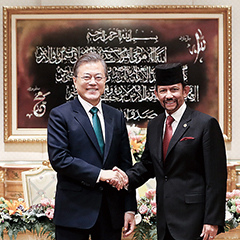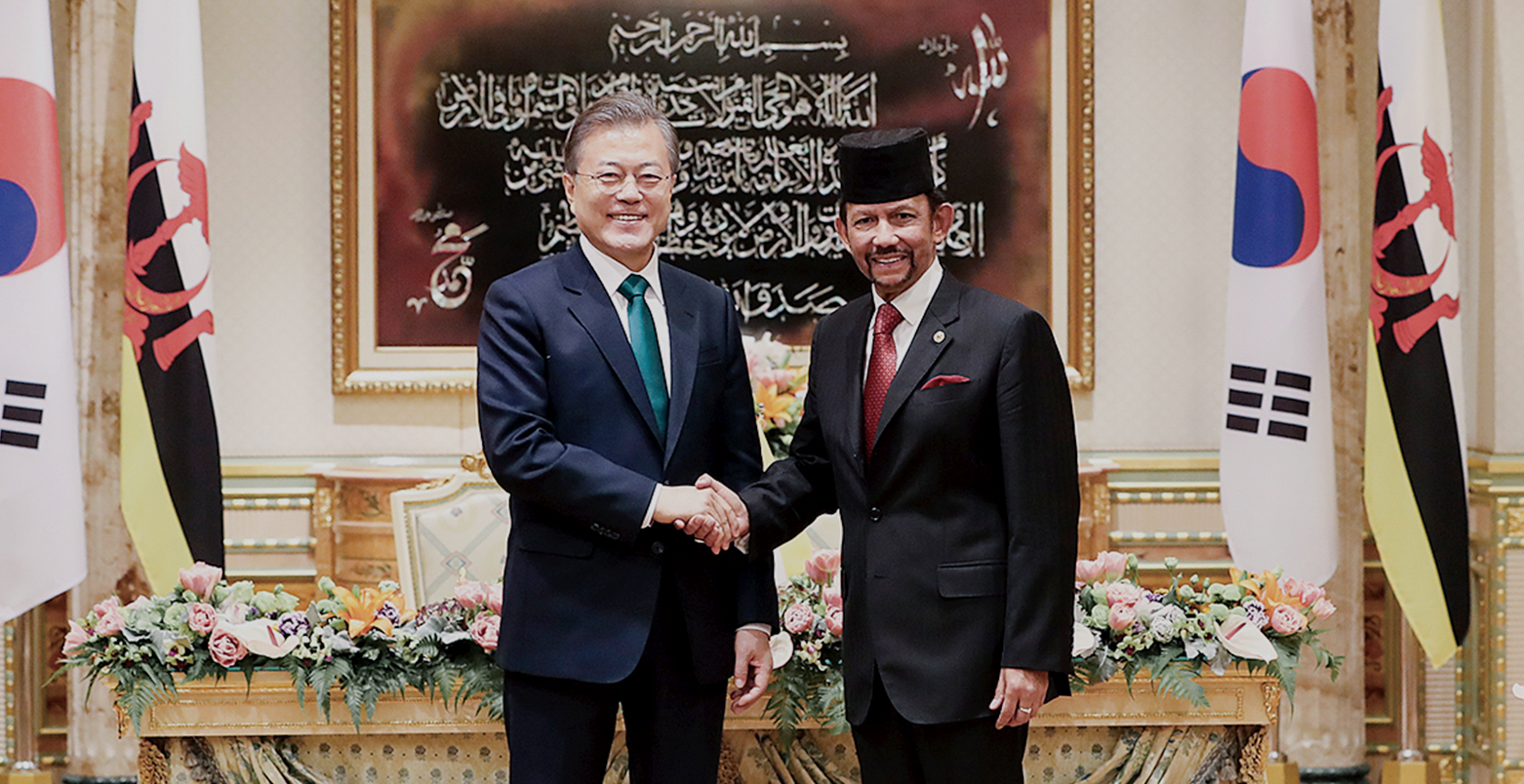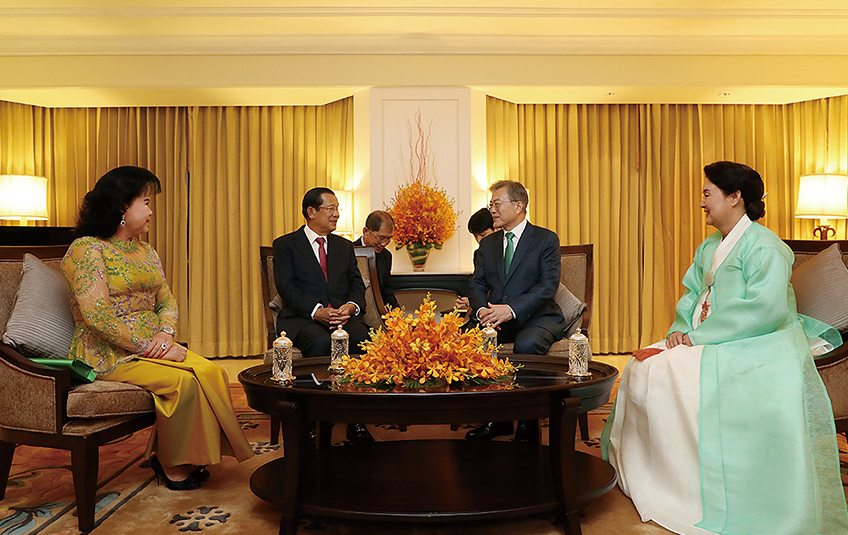
Contents










Current Korea · Written by Sohn Ji-ae Photos courtesy of Cheong Wa Dae
Putting New Southern
Policy into Action
President Moon Jae-in from March 10-16 visited Brunei, Malaysia and Cambodia for his first overseas tour this year.
His trips to the three member countries of the Association of Southeast Asian Nations (ASEAN) showed his firm commitment to his New Southern Policy,
an economic initiative aimed at expanding exchange and economic cooperation between Korea and ASEAN and India.

President Moon Jae-in (left) on March 11 shakes hands with Sultan Hassanal Bolkiah at the beginning of their summit in Brunei.
Despite global economic uncertainty and sluggishness overall, certain regions are enjoying unusually rapid growth, especially the 10 ASEAN member nations.
Emerging as economic powers with robust average growth of 5 percent per year, Brunei, Cambodia, Indonesia, Laos, Malaysia, Myanmar, the Philippines, Singapore, Thailand and Vietnam are promising with nearly half of their respective populations under age 30.
The ASEAN trading bloc is the world’s fifth-largest economy and forecast to rise to fourth place, thus business opportunities abound in the region. Singapore and Vietnam have also grabbed the global spotlight not only for economic development but also diplomatic affairs, as both have recently hosted historic summits between North Korea and the U.S.
Solidifying Bilateral Cooperation
As the political and economic importance of Southeast Asia grows, Korea seeks closer ties with this emerging bloc as well as with India, which averages growth of around 7 percent every year.
The Moon administration’s New Southern Policy targeting ASEAN and India attests to Korea’s desire to bolster cooperation with its Asian neighbors and find more economic opportunities in the region.
Seoul’s priority to this effect was evident when President Moon Jae-in chose Brunei, Malaysia and Cambodia as the destinations for his first overseas tour of the year.
From March 10-16, President Moon secured firm pledges from the three ASEAN nations to further enhance bilateral cooperation. Sound commitments from the three will help the president advance his forward-looking policy.

President Moon Jae-in and first lady Kim Jung-sook on March 14 hold a meeting with Cambodian Prime Minister Hun Sen and his wife Bun Rany in Phnom Penh.
In Brunei, Seoul signed a series of memorandums of under-standing (MOUs) to raise bilateral cooperation in infrastructure and energy. Key infrastructure projects included the Sungai Kebun Bridge and the under-construction Temburong Bridge. The new agreements will also see more joint projects in infrastructure and energy.
In Malaysia, President Moon and Malaysian Prime Minister Mahathir Mohamad agreed to pursue a bilateral free trade agreement and conclude negotiations toward that goal by year’s end. The deal is expected to help Korea expand trade volume with its fourth-largest ASEAN economic partner.
Seoul and Kuala Lumpur also signed an MOU to speed up joint projects to establish more smart cities, with Korea set to build smart city infrastructure in the Malaysian beachside city of Kota Kinabalu.
On the final leg of his tour, President Moon earned Cambodia’s pledge to expand economic cooperation in finance, infrastructure and agriculture. A significant result of the visit was a rise in Korea’s Economic Development Cooperation Fund (EDCF) to Cambodia to USD 700 million by 2023. A large portion of the amount will go toward building infrastructure and public facilities such as roads, railways and hospitals.
Beefing Up Regional Presence
President Moon thus took a bold step in his New Southern Policy with a series of agreements and commitments agreed on during his first overseas tour of the year. Korea is devoted to reinforcing its crucial partnerships with ASEAN and India, with President Moon pledging to visit all ASEAN member countries before his term ends in 2022.
Such efforts will also help Korea overcome economic difficulties at home. Stronger cooperation with its ASEAN partners will assist Korean corporations in expanding their presence in markets full of opportunities, and this could thus serve as a turning point for the Korean economy.
Other Articles






Hanbok Designer Extraordinaire



Bridging Korean and Vietnamese Culture






